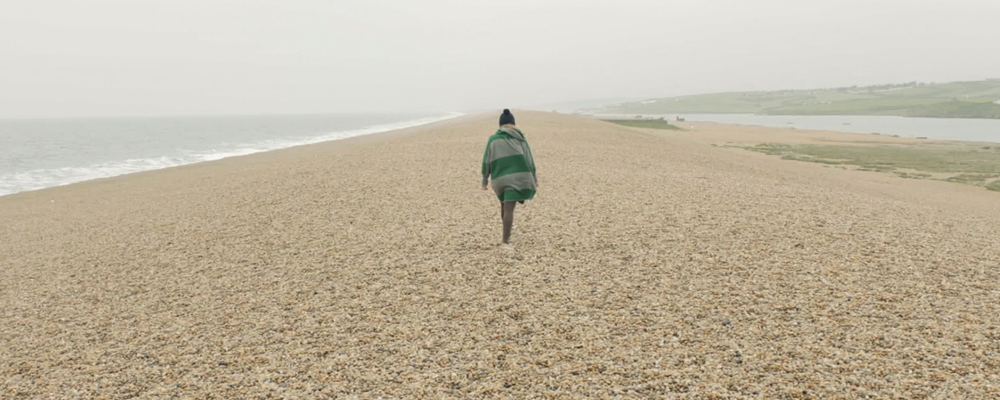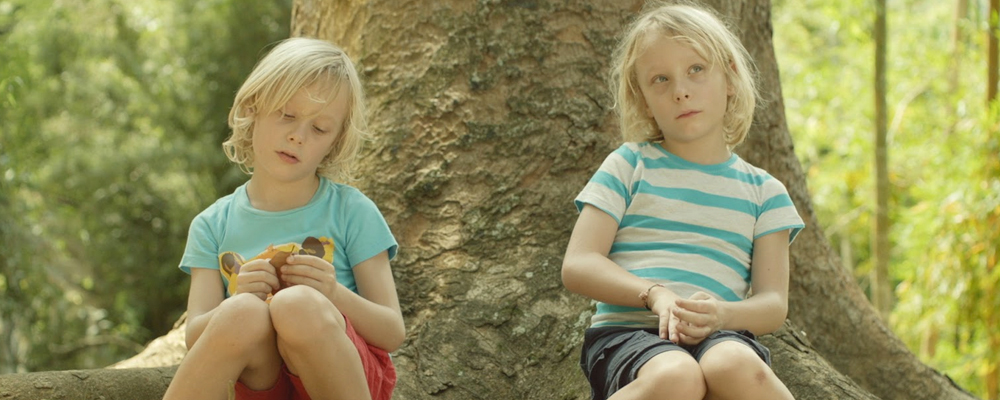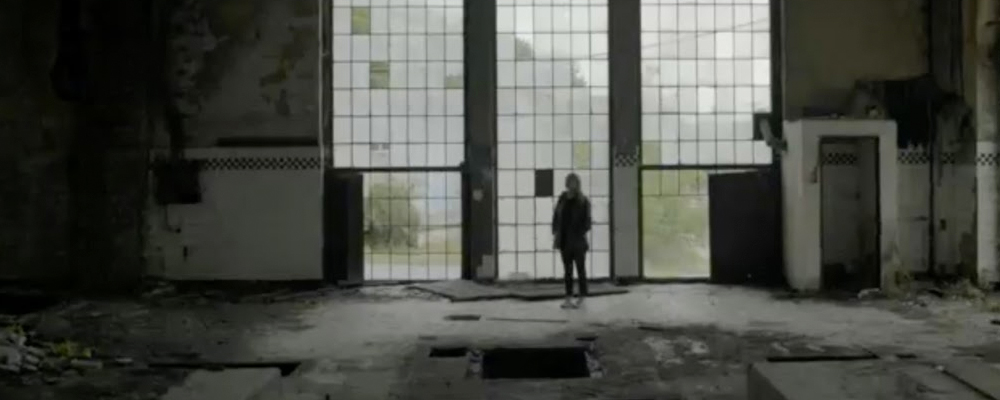‘Red Trees’ Filmmaker Marina Willer Discusses Telling Her Father’s Story and the Importance of Embracing Diversity
Sandra Miska
For designer and filmmaker Marina Willer, her latest film “Red Trees,” which was expanded from her short of the same name, focuses on a subject who was both close and distant to her – Her father, Alfred. Born in 1930 to a Jewish scientist and his gentile wife, Alfred was a member of one of the 12 Jewish families to survive the Nazi occupation of Prague. Although his father’s status as successful chemist (the elder Willer helped develop the formula for citric acid) helped him evade being sent to a concentration camp, Alfred experiences the horrors of the war nonetheless, having to deal with extreme anti-semitism, the loss of friends and relatives, and one bombing. Willer opened about to “Entertainment Voice” about her father and her journey in making this documentary, which features Alfred’s own voice and memories, as well as narration from actor Tim Pigott-Smith.
Willer revealed how she was inspired in this project not only by her father, who wanted his story told and was proud to be a part of this project with his daughter, but also current events in the world. “I didn’t really have the courage for many years, because it’s such a big subject and it touches on the Holocaust, and you want to do justice to all the issues surrounding it, political and the big scale of the human loss and all of it. But then, more recently, I’ve just seen the way the world is going and there’s so much xenophobia growing and people what to build a wall here, and Brexit where I live, and these things are so much [about intolerance]. Also, and my father is getting quite older, so there was a bit of urgency…”
While she started the project from a universal perspective, Willer also hoped to learn more about her father, who she did not feel she knew as well as she could have growing up. “I learned a lot about my father and all the pain he kept inside him and the experience of growing up in the war, it’s such a difficult one, and I had no idea how close to his heart all of that was, how the scale of the loss was so big and close to him. All of his friends had vanished [as well as many family members]. He never talked about it. I never understood why my father was a little bit closed off and reserved, almost a bit cold in a strange way, and I think I got to understand and connect with him in the very last years of his life, now that he’s very fragile and quite ill, to be honest, so that was very important.”
“Red Trees” not only tells the story of Alfred, but examines much of the Czech experience during World War II, which one does not hear about often enough, specifically the resistance and how a whole village, Lidice, was destroyed by the Nazis following the assassination of Reinhard Heydrich, the high-ranking Nazi official who was a main architect of the Holocaust and in charge of the Nazi forces in Czechoslovakia (these events were dramatized in last year’s “Anthropoid,” another film worth checking out for those interested in learning more about this chapter in history).
Willer, who grew up in Brazil, discussed how she became more connected to her heritage and the Czech people in making “Red Trees.” “Going to [Lidice] is one of the most incredible experiences. It’s so beautiful as well as devastating. The thing that kept coming back to me was how some of those experiences actually are so sad, but they’re also full of hope, because so many people put in so much effort to make them beautiful and positive and optimistic again. I think that is the thing that really touched me, and I would like to show the film there if I could.” Despite Hitler’s best efforts, Lidice was able to be vibrant once again.
Speaking of finding beauty amidst tragedy, one of the most beautiful parts of Alfred’s story took place after he was pulled out of school and forced to perform manual labor. After becoming injured and unable to work, he took to spending his days exploring Prague, which contained then some of the most stunning architecture in the world, which still exists today due to the fact that the city avoided being bombed repeatedly, as most other major European cities were during World War II. These stolen moments shaped the young and led to his future career as an architect.
Explained Willer, “It was an incredible place to grow up and learn about all these periods of architecture, and therefore he gained all that knowledge that led him to become an architect, and then Brazil really represents, in terms of architecture, a very strong wave of utopia, which is where he managed to fit very well philosophically as well, because I think it’s what comes out of someone [when you] survive the war and you survive all that stuff and you come out of that tunnel wanting to build something, to find light.”
The last part of “Red Trees” focuses on Alfred’s emigration to Brazil, where he settled and started the family that included Marina. Most people know about how many Jewish people fleeing Europe in the aftermath of the Holocaust ended up in the Middle East, where Israel was founded, but not everyone realizes that many of them ended up in Brazil. Willer opens up about this. “There’s a very large [Jewish] community there. And it’s very odd, because as you probably already know, a lot of Nazis escaped to South America, and then they all moved there, which is very strange… Some of them have never been discovered, obviously… It’s just the way history goes, isn’t it? It’s a crazy thing. It’s really so upsetting. Social justice is still a real issue there in many ways, but at the same time there is an acceptance of diversity in a basic form and the celebration of that.”
Willer went out to point out how mass immigration helped shaped Brazil for the better. “[Brazil offered] a lot of opportunities to a lot of immigrants to still keep developing their scientific or whatever skills, and also, it welcomed those skills, because they were very clever to understand that those were a gift to them, rather than shut a door like [some countries] do now to incredible scientists and other skilled people that could be coming from Syria and other places.”
What does Willer hope viewers take away from “Red Trees” and her father’s story? “I know you can’t make specific parallels because the world is, in many ways, more complex now and there are many things going on… I just hope that we don’t repeat the horrors that we committed in the past and that we are much more open and accepting of each other’s diversity, rather than just closing doors and think that people are moving to one place or another because they want to. I think war pushes people out of their countries of origin, and they don’t necessarily want to, but they have no option. We need to be trying solutions, and although we can see how some people have benefited, like [my family] who learned from my father, and there’s so much beauty in that, and though migration can have a very positive outcome, we don’t want people to be pushed out…. I think it’s important that we embrace fluidity and change. That’s what the modern world is really about.”
“Red Trees” ends with a very profound message from Alfred, in which he says he doesn’t consider himself beholden to any one culture or religion. “That doesn’t mean deny your origins,” explained his daughter. “You can still be Jewish or Catholic or whatever you are, but you can also incorporate other [cultures] that then become a part of your growth. I think that is the contemporary way of understanding origins and religion and all of that, I need just being completely fixed in one way of growing.”
“Red Trees” opens September 15 in select theaters.



